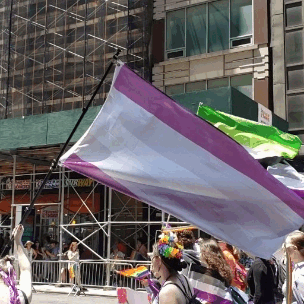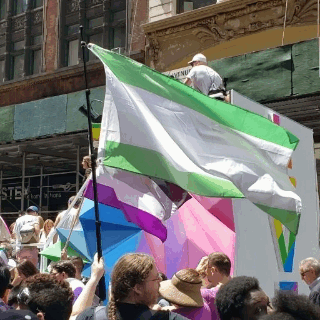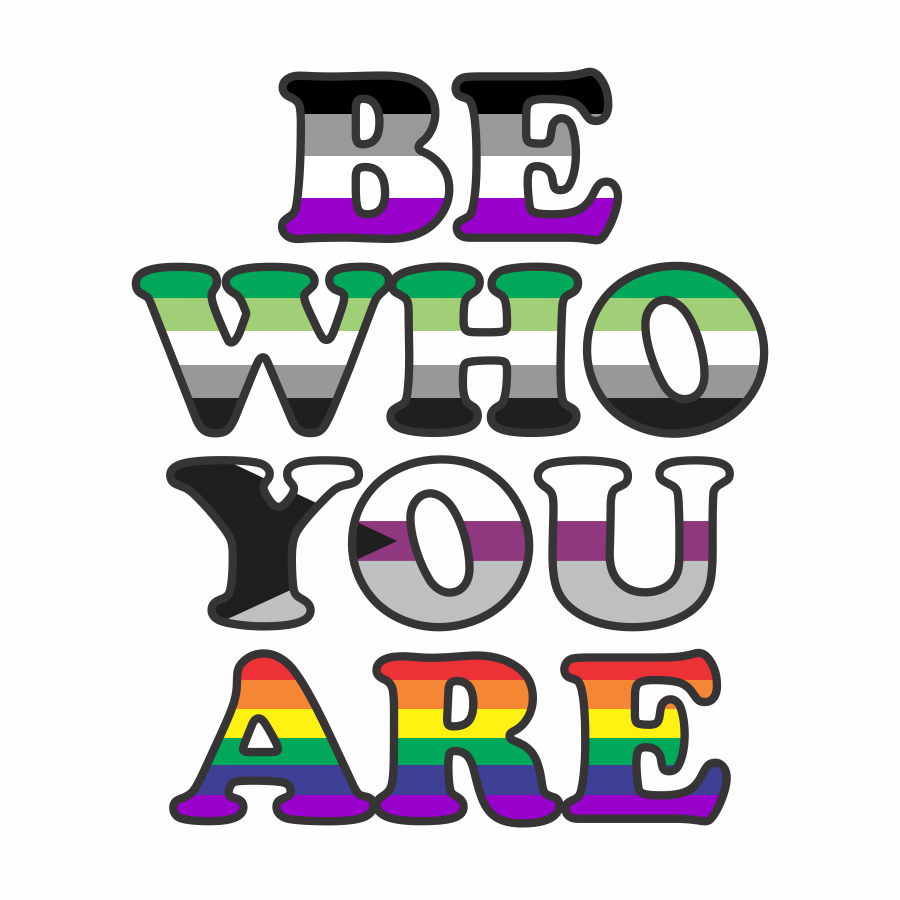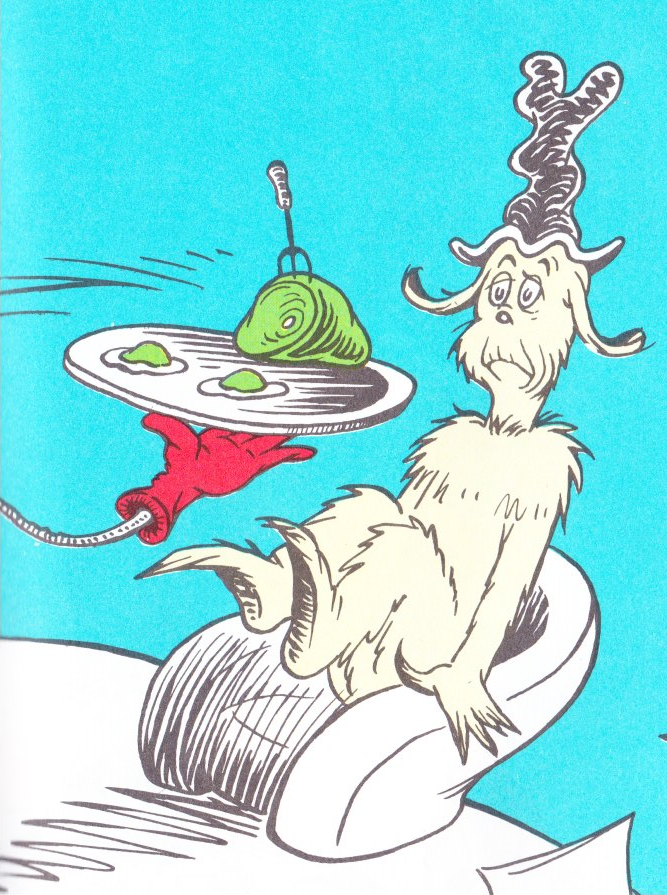This post is a survey of anti-discrimination laws in the United States, with respect to aromantics and asexuals. It is a snapshot in time as of 4/16/2019 and may not reflect changes. This page should not remotely be taken as legal advice. I should also point out that I have no legal training and therefore my interpretations and understanding of these laws could be completely wrong. I may have also missed laws along the way. It should also be noted that I did not review executive orders, which could add protections beyond what’s listed here. Furthermore, some states have multiple sets of laws and regulations, and I may not have searched through both. I will have made mistakes, so please do your own research where relevant, and please correct me if you find mistakes or omissions.
I wanted to get a sense of the state of legal protections across the country for aces and aros. Many people believe that sexual orientation is a protected class and that asexual people cannot be fired or denied housing, etc., on the basis of their orientation. While that is the spirit of many of these laws, it is not always the letter of the law. In many cases, as you’ll see, “sexual orientation” is defined very explicitly and in a way that excludes asexual people. Aromantic people aren’t even considered in most of these laws, as romantic orientation isn’t even a concept most places mention at all.
For this post, I’m only looking at the US at the state level, but you are free to post details about your local laws in the comments. Also, beyond the initial discussion regarding federal protections, I am specifically looking for state (+DC/PR) laws that explicitly mention sexual or romantic orientation, asexuality, or aromanticism. (Specifically: “sexual orientation”, “romantic orientation”, “affectional orientation”, “asexual”, “asexuality”, “aromantic”, “aromanticism”) These limited search terms mean that I may miss things, particularly cases where a state may have an umbrella interpretation of a law which does not use those phrases.
This post is mostly the survey of the laws. For commentary and possible action items, see this post.
tl; dr:
- Explicit protection for asexuality: NY
- Explicit protection for aromanticism: Nowhere
- Mention of romantic (affectional, emotional) orientation: MN, NJ, PA, PR
- Unclear/vague protection status: MA, NJ, PA, PR, entire US
- Asshole states that deliberately exclude sexual orientation from anti-discrimination laws: ND, OK, TX, WY
US Federal Level
Title VII of the Civil Rights Act of 1964 is the primary anti-discrimination law covering employment in the US. It does not specifically mention sexual or romantic orientation. However it has been interpreted by various courts and government agencies to afford such protections indirectly. The thinking goes that since Title VII protects against discrimination based on sex, and since the only difference between a straight relationship and a gay relationship is the sex of the participants, that discrimination based on sexual orientation is fundamentally a violation of the protection against discrimination based on sex. The Fair Housing Act provides a similarly vague blanket of coverage regarding housing.
Employment Law (42 USC 2000) | Housing Law (42 USC 3604)
The good news is that these Federal laws apply and override any local laws anywhere in the United States. So, it is currently considered illegal to discriminate on the basis of sexual orientation for the purposes of employment or housing in the entire United States. The bad news is that this protection is based on an interpretation that sexual orientation discrimination is fundamentally discrimination on the basis of sex, and that interpretation could be wiped out by a single court decision. That is where state and local laws come into effect. If the federal protection vanishes one day, the state laws will take over.
Furthermore on the “bad news” side, it’s unclear to me that discrimination against asexual or aromantic people would even be prohibited under this protection. I don’t know that it could be argued that it’s discrimination on the basis of sex, when sex (the characteristic, not the activity) isn’t necessarily a factor. And federal law does not seem to have a “marital status” protection that could potentially be used in some cases.
Bottom line: No explicit protection against discrimination on the basis of sexual or romantic orientation exists at the federal level.
Alabama
No laws found.
Alaska
No laws found.
Arizona
ARS 41-1750 talks about collecting information regarding crimes that relate to sexual orientation and ARS 41-1822 discusses police officer training regarding crimes relating to sexual orientation, but they both appear to explicitly deny any protections related to sexual orientation. Additionally, they define “sexual orientation” as “consensual homosexuality or heterosexuality.”
ARS 20-1632 prohibits discrimination based on sexual orientation in the renewal of car insurance. A definition of “sexual orientation” does not appear to be provided.
Bottom line: Asexual people are protected against having their car insurance cancelled. Hate crime reporting requirements do not necessarily include aces. No direct protections for aromantic people.
Arkansas
ACA 6-18-514 includes sexual orientation (without an explicit definition) in a list of attributes in an anti-bullying statute that protects public school students and employees.
ACA 9-6-106 requires DV shelters getting state money to have a non-discrimination policy which includes sexual orientation.
Bottom line: Asexual people are protected against bullying in public schools and are protected from discrimination in domestic violence shelters that get state grants. No direct protections for aromantic people.
California
California has wide ranging protections based on sexual orientation. Unfortunately, everywhere that “sexual orientation” is defined, it’s explicitly defined as “heterosexuality, homosexuality, and bisexuality.” It is unclear the extent that these definitions apply, as some sections reference them explicitly, some are covered by virtue of being in the same title, however, it’s possible some sections of state law are not covered by these explicit definitions and may use a more general, non-legalistic definition. I did not find an overarching default definition.
Bottom line: When “sexual orientation” is defined, asexual people are not included. This definition may not cover all parts of state law, leaving protections for ace people murky. Aromantic people are not mentioned.
Colorado
Colorado has wide ranging protections based on sexual orientation. CRS 2-4-401, which seems to be a default definition for all of Colorado state law, defines “sexual orientation” as “a person’s orientation toward heterosexuality, homosexuality, bisexuality, or transgender status or another person’s perception thereof.” Asexuality is excluded from that definition. (This is also the first case where gender identity and sexual orientation are conflated into a single definition. We’ll be seeing more of that as we go…)
Bottom line: Asexual people are excluded from the definition of sexual orientation, therefore protections likely do not apply. Aromantic people are not mentioned.
Connecticut
Connecticut has a specific section dedicated to protections based on sexual orientation. In that section, 46a-81a defines “sexual orientation” as “having a preference for heterosexuality, homosexuality or bisexuality, having a history of such preference or being identified with such preference”, leaving out asexuality. It’s unclear whether other sections of state law would use this same definition, as this definition appears to have a limiting scope and I do not see a definition elsewhere.
Bottom line: Connecticut is similar to California, in that the definition given does not include asexuality, but the scope of the definition may not apply to all anti-discrimination provisions regarding sexual orientation. Aromantic people are not mentioned.
Delaware
Delaware has wide ranging protections for sexual orientation, but like California, it has a definition that does not include asexuality, which may or may not apply to every usage of the phrase. In several sections, such as 19-710, Delaware Law says “sexual orientation exclusively means heterosexuality, homosexuality, or bisexuality.” The use of the word “exclusively” makes the omission of asexuality more emphatic. Sexual orientation is the only definition on that page which uses the word “exclusively”.
Bottom line: Delaware is similar to California, in that the definition given does not include asexuality, but the scope of the definition may not apply to all anti-discrimination provisions regarding sexual orientation. Aromantic people are not mentioned.
Florida
Florida law primarily references sexual orientation when talking about hate groups, criminal gangs, and hate crimes. There are also a few mentions of it in relation to HIV screening and charity law (saying that the state can’t force a charity to be inclusive of sexual orientation). The only explicit anti-discrimination clause I see that includes sexual orientation is in regards to hospice care (400-6095).
Bottom line: Asexuals in Florida are protected against discrimination by hospice facilities, and crimes against asexual people motivated by their asexuality could potentially be treated as a hate crime. Aromantic people are not mentioned.
Georgia
No laws found.
Hawaii
Hawaii is similar to California: Wide ranging protections based on sexual orientation, but no central default definition. Where defined (such as in HRS 489-2), Hawaii says “sexual orientation” is “having a preference for heterosexuality, homosexuality, or bisexuality, having a history of any one or more of these preferences, or being identified with any one or more of these preferences.”
Bottom line: Hawaii is similar to California, in that the definition given does not include asexuality, but the scope of the definition may not apply to all anti-discrimination provisions regarding sexual orientation. Aromantic people are not mentioned.
Idaho
The only reference to “sexual orientation” in the Idaho statutes is a requirement that student educational records should not include it. (They’re also not allowed to include a student’s gun ownership records.) Aromantic people are not mentioned.
Illinois
Illinois is similar to California: Wide ranging protections based on sexual orientation, but no central default definition. Where defined (such as in 775 ILCS 5), Illinois says “sexual orientation” is “actual or perceived heterosexuality, homosexuality, bisexuality, or gender-related identity, whether or not traditionally associated with the person’s designated sex at birth.”
Bottom line: Illinois is similar to California, in that the definition given does not include asexuality, but the scope of the definition may not apply to all anti-discrimination provisions regarding sexual orientation. Aromantic people are not mentioned.
Indiana
Sexual orientation is only mentioned a few times in Indiana law. It is referenced in the hate crime statute, it is part of the required training for a marriage and family counselor, and it’s mentioned twice in the “religious freedom” statue, which says that the statute does not permit discrimination on the basis of sexual orientation, nor can it be used as a defense against a lawsuit if someone claims discrimination.
Bottom line: Indiana does not have protections for asexual or aromantic people.
Iowa
Iowa has wide ranging protections against discrimination on the basis of sexual orientation. However, most of these protections are in a section (Chapter 216) which defines “sexual orientation” as “actual or perceived heterosexuality, homosexuality, or bisexuality.”
Bottom line: Asexual people are not included in the definition of sexual orientation, therefore protections may not apply. Aromantic people are not mentioned.
Kansas
Kansas law only mentions sexual orientation in its hate crime statute. No definition is provided, therefore asexuality would be covered. Aromantic people are not mentioned.
Kentucky
Kentucky law mentions sexual orientation in its hate crime statute, as well as relating to HIV testing for insurance purposes. No definition is provided in either case, therefore asexuality would be covered.
Aromantic people are not mentioned.
Louisiana
Louisiana law mentions sexual orientation in its hate crime statute, including in training to recognize hate crimes and in reporting requirements. No definition is provided, therefore asexuality would be covered.
Aromantic people are not mentioned.
Maine
Maine has wide ranging protections against discrimination on the basis of sexual orientation. However, most of these protections are in a section which defines (5-4553) “sexual orientation” as “means a person’s actual or perceived heterosexuality, bisexuality, homosexuality or gender identity or expression.”
Bottom line: Asexual people are not included in the definition of sexual orientation, therefore protections may not apply. Aromantic people are not mentioned.
Maryland
Maryland has wide ranging protections against discrimination on the basis of sexual orientation. However, most of these protections are in a section which defines (20-101) “sexual orientation” as “the identification of an individual as to male or female homosexuality, heterosexuality, or bisexuality.”
Bottom line: Asexual people are not included in the definition of sexual orientation, therefore protections may not apply. Aromantic people are not mentioned.
Massachusetts
Massachusetts law has wide ranging protections for sexual orientation. However, from there, it gets confusing. The definitions section of the anti-discrimination chapter does not include a definition of “sexual orientation”. That could imply that asexuality is protected under MA law. However, in the section on the duties and organization of the Commission Against Discrimination, which is set up to handle discrimination complaints, there is an inexplicable definition of sexual orientation in the middle of an unrelated paragraph. That definition reads “having an orientation for or being identified as having an orientation for heterosexuality, bisexuality, or homosexuality. ” It is possible that definition applies to the entire chapter, in which case asexuality is not covered by the anti-discrimination laws. It is possible that definition applies only to the activities of the commission, which puts asexuality in a weird limbo state, where discrimination against asexuals is illegal, but the commission who would take action against such discrimination is unable to interpret sexual orientation to include asexuality. Or it is possible that because of where that definition is placed, it has no relevant scope, therefore the definition is irrelevant, which would mean asexuality is covered.
Bottom line: I have no idea. And aromantic people aren’t mentioned.
Michigan
From what I can tell, the only anti-discrimination protections in Michigan law that include sexual orientation are in a couple of clauses which prevent regional convention authorities from discriminating in employment or contracting matters. No definition of sexual orientation is provided, so asexual people would be covered. Good for you if you wanted a job with the regional convention authority.
Aromantic people are not mentioned.
Minnesota
Minnesota appears similar to California, with wide ranging protections, but no default definition. Most of the protections are in a chapter which defines sexual orientation (363A.03) as “having or being perceived as having an emotional, physical, or sexual attachment to another person without regard to the sex of that person or having or being perceived as having an orientation for such attachment, or having or being perceived as having a self-image or identity not traditionally associated with one’s biological maleness or femaleness.” This wording would protect against discrimination on the basis of romantic orientation, however, as it is predicated on having an attachment, it would not protect aromantic or asexual people who do not have such an attachment.
Bottom line: If a homoromantic asexual person is discriminated against based on their being homoromantic, that would be covered, but if they’re discriminated against for being asexual, that would not be covered. And although this definition calls out “emotional” orientation, it does not provide any more protection for aromantic people than other states which do not have such a clause in their definition.
Mississippi
Mississippi only mentions sexual orientation in regards to “conscience exemptions” for health care and health insurance providers. These laws permit providers to refuse services on conscience grounds, but they carve out a restriction in that a provider must not refuse on the basis of sexual orientation and other characteristics. “Sexual orientation” is not defined, so asexuality would be covered. There are no other anti-discrimination statutes which reference sexual orientation.
Bottom line: You cannot be refused medical treatment because you are asexual. Aromantic people are not mentioned.
Missouri
Missouri has a hate crime law that includes sexual orientation, as well as a provision for a civilian review board to look at complaints of police mistreatment on the basis of sexual orientation, however, both of those protections appear to be covered by the definition of sexual orientation in 556.061, which reads “male or female heterosexuality, homosexuality or bisexuality by inclination, practice, identity or expression, or having a self-image or identity not traditionally associated with one’s gender”.
Bottom line: There do not appear to be any protections for asexuality or aromanticism.
Montana
The only reference to sexual orientation in the MCA seems to be an anti-discrimination clause related to certain transfers of life insurance policies.
Aromantic people are not mentioned.
Nebraska
Nebraska includes sexual orientation in its hate crime statute, and does not provide a definition, so asexuality would be covered. There is also a clause that states that any university getting money from a particular fund cannot discriminate on the basis of sexual orientation.
Aromantic people are not mentioned.
Nevada
Nevada has wide ranging protections against discrimination on the basis of sexual orientation. However, most of these protections list a definition (For instance, NRS 613.310) of “sexual orientation” as “having or being perceived as having an orientation for heterosexuality, homosexuality or bisexuality.”
Bottom line: Asexual people are not included in the definition of sexual orientation, therefore protections may not apply. Aromantic people are not mentioned.
New Hampshire
New Hampshire has wide ranging protections against discrimination on the basis of sexual orientation. However, there appears to be a default definition of “sexual orientation” that applies to the entire body of New Hampshire law in 21:49, which defines sexual orientation as “having or being perceived as having an orientation for heterosexuality, bisexuality, or homosexuality.” As with the many other states using this definition, it does not include asexuality.
Bottom line: Asexual people are not included in the definition of sexual orientation, therefore protections may not apply. Aromantic people are not mentioned.
New Jersey
New Jersey has wide ranging protections against discrimination on the basis of “affectional or sexual orientation”. On the face of it, this is amazing, because it recognizes a difference between romantic orientation and sexual orientation and explicitly protects both! Unfortunately, as is the case is so many of the other states in this survey, everything falls apart in the definition. When defined, such as in
NJAC 6A:7-1.3, “affectional or sexual orientation” is “male or female heterosexuality, homosexuality, or bisexuality by inclination, practice, identity, or expression, having a history thereof, or being perceived, presumed, or identified by others as having such an orientation.” Which… Completely leaves out any distinction regarding the “affectional” part and leaves out asexuality. But, those definitions seem to be limited in scope and may not apply to all of the anti-discrimination protections, and if those definitions do not apply generally, then asexual and aromantic people are protected by most of the anti-discrimination policies.
Bottom line: Honestly, I have no idea. Swing and a miss? Home run?
New Mexico
New Mexico has wide ranging protections against discrimination on the basis of sexual orientation. However, most of these protections are in a section which defines (28-1-2) “sexual orientation” as “heterosexuality, homosexuality or bisexuality, whether actual or perceived.”
Bottom line: Asexual people are not included in the definition of sexual orientation, therefore protections may not apply. Aromantic people are not mentioned.
New York
New York has wide ranging protections against discrimination on the basis of sexual orientation. The definition used for sexual orientation by most, if not all of these provisions, is in Executive Law 292 (which I can’t link to because the website is from 1997 and doesn’t work like that.): “heterosexuality, homosexuality, bisexuality or asexuality, whether actual or perceived.” Ding ding ding! We have a winner! Finally, a state which explicitly includes asexuality in the definition of sexual orientation it uses.
However… There’s no mention of aromantic people or the concept of romantic orientation. (Or pansexual people, etc.)
Bottom line: Asexual people are fully protected by New York’s anti-discrimination laws. Aromantic people are ignored. Again.
North Carolina
The only mention of sexual orientation is in an anti-bullying statute (115C 407.15). Sexual orientation is not defined, so asexuality would be included. Aromantic people are not mentioned.
North Dakota
North Dakota’s only mention of sexual orientation comes in a line specifically designed to make it clear that sexual orientation is not a protected class in its housing discrimination statute.
Bottom line: Fuck you, North Dakota.
Ohio
Ohio only mentions sexual orientation in its hate crime statute and in HIV-related sections regarding insurance. Sexual orientation is not defined, so asexuality would be included. Aromantic people are not mentioned.
Oklahoma
Oklahoma mentions sexual orientation in the same way as North Dakota: As a means to deliberately exclude sexual orientation as a protected class in its anti-discrimination statutes. Oklahoma law also notes that judges must not allow bias or prejudice around sexual orientation to take place in court, either through their own actions or in the actions of others in the court. So that’s something, I guess.
Bottom line: The courtroom thing is nice to see, but still, fuck you, Oklahoma.
Oregon
ORS 659A includes wide ranging anti-discrimination protections for sexual orientation, however ORS 174.100 provides a default definition of “sexual orientation” which says “an individual’s actual or perceived heterosexuality, homosexuality, bisexuality or gender identity, regardless of whether the individual’s gender identity, appearance, expression or behavior differs from that traditionally associated with the individual’s sex at birth.”
Bottom line: Asexual people are not included in the definition of sexual orientation, therefore protections may not apply. Aromantic people are not mentioned.
Pennsylvania
Pennsylvania state law does not include an explicit protection for sexual orientation within its state law (except for stating that people can’t be kicked out of racetracks due to their orientation), however, much like at the federal level, PA authorities have interpreted the protections against sex discrimination to include sexual orientation. That guidance can be found here. Of note is their definition of “sexual orientation”, which states: “An inherent or immutable enduring emotional, romantic, or sexual attraction to other people, including but not limited to: heterosexual, homosexual, and bisexual”. This definition recognizes romantic attraction, and “including but not limited to” does not slam the door on asexuality, both of which are good, however, there is ambiguity in the “to other people” clause. That puts Pennsylvania in a similar zone as Minnesota, where attraction is protected, but a lack of attraction may not be.
Bottom line: Protections for asexual and aromantic people may exist, but they are ambiguous and based on an interpretation of the word “sex” which could change without legislative action.
Puerto Rico
Puerto Rico has wide ranging protections against discrimination on the basis of sexual orientation. Where defined, such as in 29 LPRA 151, it is defined as “the ability of any person of having an emotional, affectional, or sexual attachment to persons of the other gender, the same gender, or more than one gender.” While this recognizes a difference between romantic and sexual orientation, like Minnesota, it requires an “attachment” toward one or more genders, leaving out the case of not being attracted to any genders. However, there is an additional clause which states “this definition shall be interpreted as broadly as possible to extend the benefits thereof to any citizen who is a victim of discrimination, whether it is a one-time event or a pattern.”
Bottom line: Unclear. There is no specific mention of asexuality or aromanticism, and the definition seemingly rules both out, but there is also a clause directing a broad interpretation, which can be interpreted in an inclusive manner.
Rhode Island
Rhode Island is similar to California: Wide ranging protections based on sexual orientation, but no central default definition. Where defined (such as in 11-24-2.1), Rhode Island says “sexual orientation” is “having or being perceived as having an orientation for heterosexuality, bisexuality, or homosexuality.”
Bottom line: Rhode Island is similar to California, in that the definition given does not include asexuality, but the scope of the definition may not apply to all anti-discrimination provisions regarding sexual orientation. Aromantic people are not mentioned.
South Carolina
No laws found.
South Dakota
No laws found.
Tennessee
Tennessee law does not appear to have many protections based on sexual orientation. It has a similar law to Florida regarding behaviors of certain charities, it has a hate crime enhancement, and it prohibits polygraph operators from asking questions about sexual orientation.
Bottom line: Sorry, Tennessee.
Texas
Texas mentions sexual orientation in the same way as North Dakota: As a means to deliberately exclude sexual orientation as a protected class in its anti-discrimination statutes.
Bottom line: Fuck you, too, Texas. (Except San Antonio.)
Utah
Utah, surprisingly, has some wide ranging anti-discrimination policies which include sexual orientation. (It also has a number of policies which say it’s A-OK to discriminate if you hide behind your religion…) However, where defined, as in 57-21-S2, “sexual orientation” is defined as “an individual’s actual or perceived orientation as heterosexual, homosexual, or bisexual”.
Bottom line: Asexual people are not included in the definition of sexual orientation, therefore protections may not apply. Aromantic people are not mentioned.
Vermont
Vermont has wide ranging protections based on sexual orientation. 1 VSA 143, which seems to be a default definition for all of Vermont state law, defines “sexual orientation” as “female or male homosexuality, heterosexuality, or bisexuality.”
Bottom line: Asexual people are not included in the definition of sexual orientation, therefore protections may not apply. Aromantic people are not mentioned.
Virginia
No laws found.
Washington
Washington has wide ranging protections against discrimination on the basis of sexual orientation. However, most of these protections are in a section which defines (RCW 49.60.040) “sexual orientation” as “heterosexuality, homosexuality, bisexuality, and gender expression or identity”
Bottom line: Asexual people are not included in the definition of sexual orientation, therefore protections may not apply. Aromantic people are not mentioned.
Washington DC
Washington DC has one of the most terrible law search features I’ve seen. Somehow, it manages to be worse than New Mexico’s, which was flat out broken. Results show up five at a time in a tiny column and can’t be opened in a new tab, so I have no way to cross reference or keep my place. So I have no idea what DC law says. I did find this definition for “sexual orientation”: “male or female homosexuality, heterosexuality and bisexuality, by preference or practice.” Unfortunately, I have no idea how widely this applies, because I can’t figure out what’s going on.
Bottom line: Hell if I know.
West Virginia
No laws found.
Wisconsin
Wisconsin has wide ranging protections against discrimination on the basis of sexual orientation. However, most of these protections list a definition (111.32.13m) of “sexual orientation” as “having a preference for heterosexuality, homosexuality or bisexuality, having a history of such a preference or being identified with such a preference.”
Bottom line: Asexual people are not included in the definition of sexual orientation, therefore protections may not apply. Aromantic people are not mentioned.
Wyoming
Wyoming mentions sexual orientation in the same way as North Dakota: As a means to deliberately exclude sexual orientation as a protected class in its anti-discrimination statutes.
Bottom line: Fuck you, too, Wyoming.
Honorable Mention: New York City
In NYC, there are wide ranging anti-discrimination protections on the basis of sexual orientation. Administrative code 8-102 defines sexual orientation as “an individual’s actual or perceived romantic, physical or sexual attraction to other persons, or lack thereof, on the basis of gender. A continuum of sexual orientation exists and includes, but is not limited to, heterosexuality, homosexuality, bisexuality, asexuality and pansexuality.”
Bottom line: NYC’s anti-discrimination protections explicitly include asexual people and implicitly include aromantic people!
Bottom Bottom Line:
There is only one state which explicitly recognizes asexuality in its anti-discrimination statutes. About half the states don’t even have a protection for sexual orientation at all, and almost all of the ones that do use a definition for “sexual orientation” which excludes asexuality in some way. Romantic orientation is barely protected anywhere, and most of those places appear to exclude aromanticism.
Only a handful of cities have protection for asexuality (NYC, Albany, NY, and San Antonio, TX are the only ones I’m aware of), and I don’t know of any that specifically include aromanticism.
We have a lot of work to do. Time to get busy.






















